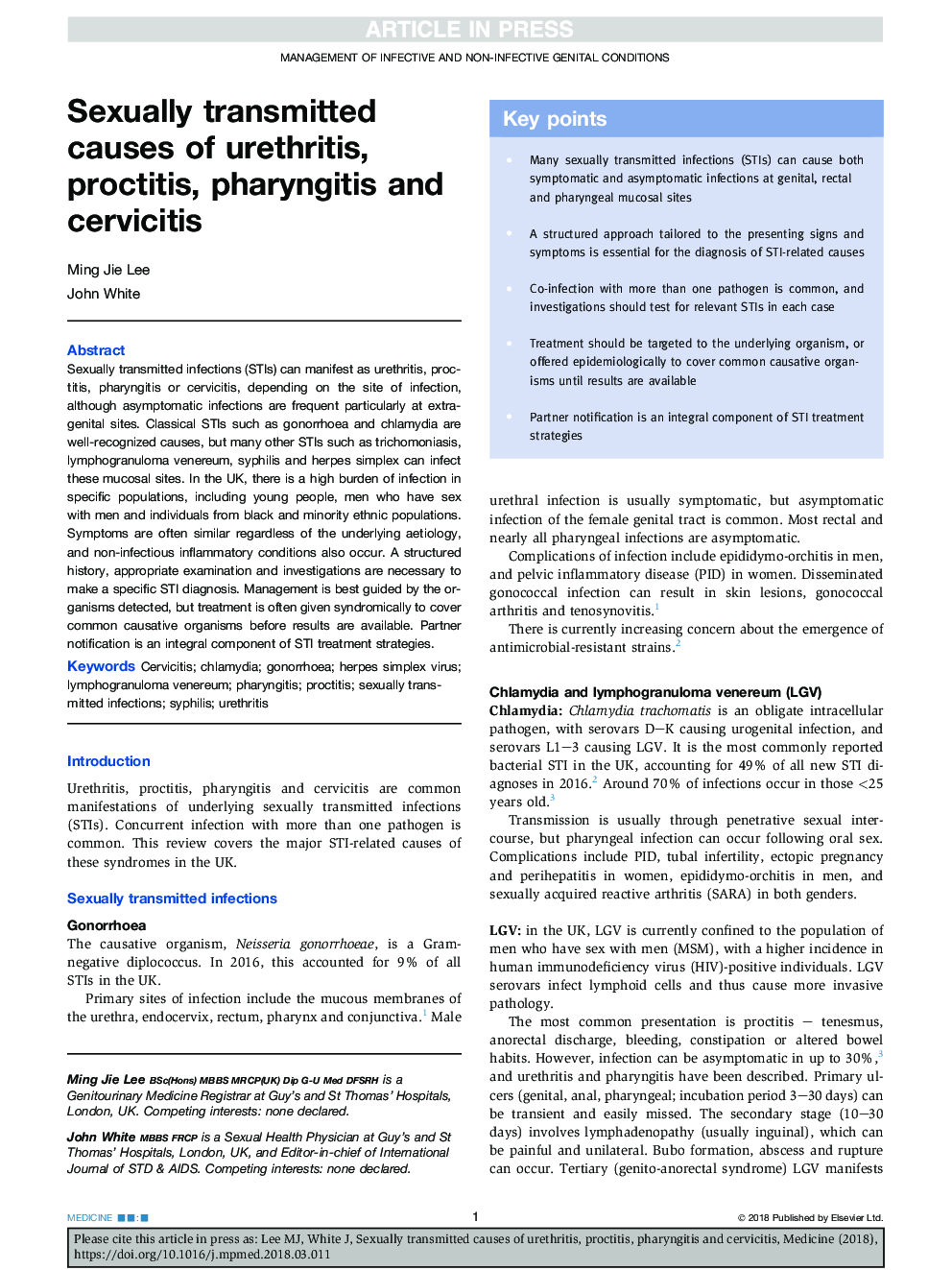| Article ID | Journal | Published Year | Pages | File Type |
|---|---|---|---|---|
| 8764003 | Medicine | 2018 | 6 Pages |
Abstract
Sexually transmitted infections (STIs) can manifest as urethritis, proctitis, pharyngitis or cervicitis, depending on the site of infection, although asymptomatic infections are frequent particularly at extragenital sites. Classical STIs such as gonorrhoea and chlamydia are well-recognized causes, but many other STIs such as trichomoniasis, lymphogranuloma venereum, syphilis and herpes simplex can infect these mucosal sites. In the UK, there is a high burden of infection in specific populations, including young people, men who have sex with men and individuals from black and minority ethnic populations. Symptoms are often similar regardless of the underlying aetiology, and non-infectious inflammatory conditions also occur. A structured history, appropriate examination and investigations are necessary to make a specific STI diagnosis. Management is best guided by the organisms detected, but treatment is often given syndromically to cover common causative organisms before results are available. Partner notification is an integral component of STI treatment strategies.
Keywords
Related Topics
Health Sciences
Medicine and Dentistry
Medicine and Dentistry (General)
Authors
Ming Jie Lee, John White,
